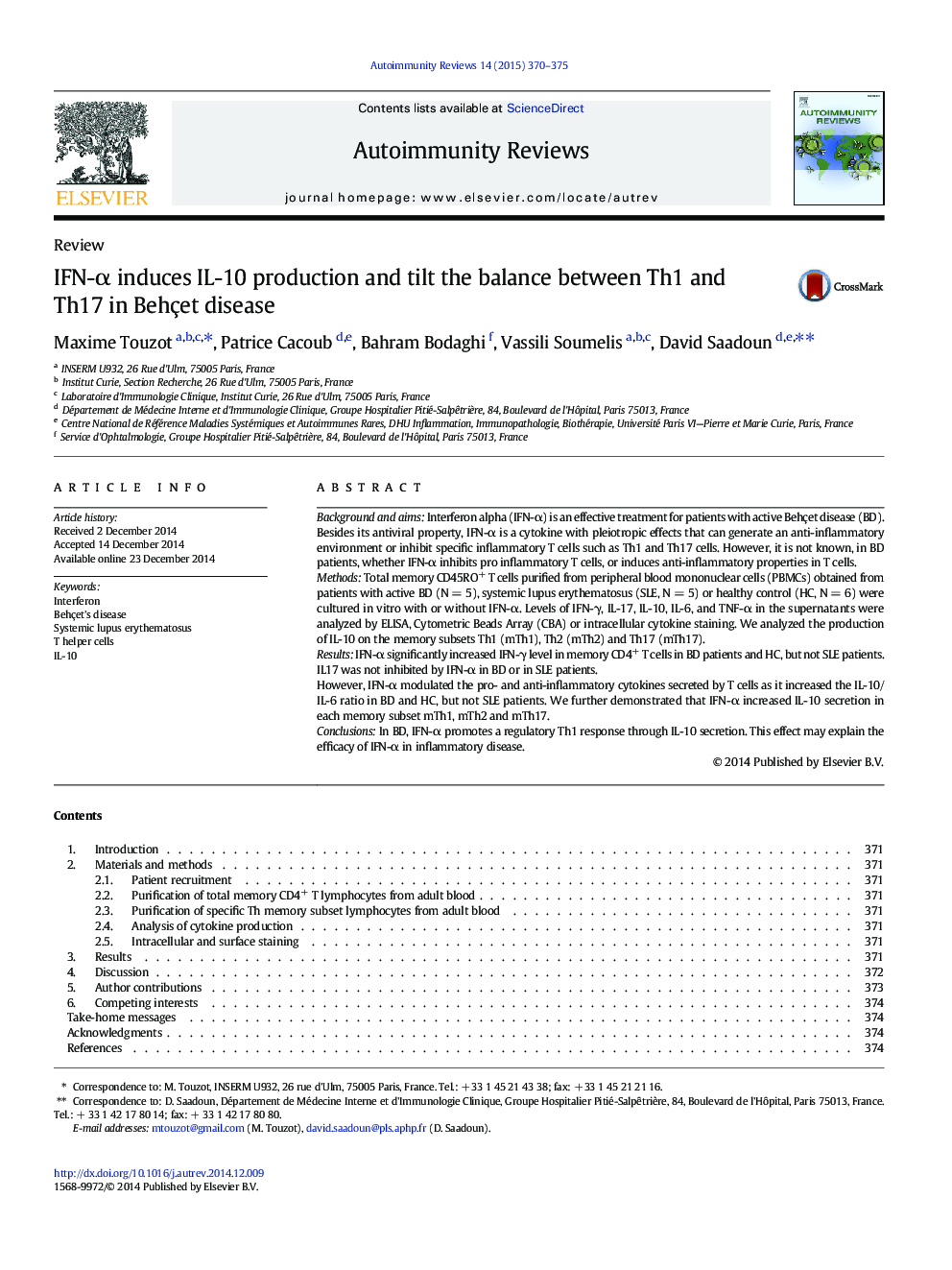| Article ID | Journal | Published Year | Pages | File Type |
|---|---|---|---|---|
| 3341650 | Autoimmunity Reviews | 2015 | 6 Pages |
Background and aimsInterferon alpha (IFN-α) is an effective treatment for patients with active Behçet disease (BD). Besides its antiviral property, IFN-α is a cytokine with pleiotropic effects that can generate an anti-inflammatory environment or inhibit specific inflammatory T cells such as Th1 and Th17 cells. However, it is not known, in BD patients, whether IFN-α inhibits pro inflammatory T cells, or induces anti-inflammatory properties in T cells.MethodsTotal memory CD45RO+ T cells purified from peripheral blood mononuclear cells (PBMCs) obtained from patients with active BD (N = 5), systemic lupus erythematosus (SLE, N = 5) or healthy control (HC, N = 6) were cultured in vitro with or without IFN-α. Levels of IFN-γ, IL-17, IL-10, IL-6, and TNF-α in the supernatants were analyzed by ELISA, Cytometric Beads Array (CBA) or intracellular cytokine staining. We analyzed the production of IL-10 on the memory subsets Th1 (mTh1), Th2 (mTh2) and Th17 (mTh17).ResultsIFN-α significantly increased IFN-γ level in memory CD4+ T cells in BD patients and HC, but not SLE patients. IL17 was not inhibited by IFN-α in BD or in SLE patients.However, IFN-α modulated the pro- and anti-inflammatory cytokines secreted by T cells as it increased the IL-10/IL-6 ratio in BD and HC, but not SLE patients. We further demonstrated that IFN-α increased IL-10 secretion in each memory subset mTh1, mTh2 and mTh17.ConclusionsIn BD, IFN-α promotes a regulatory Th1 response through IL-10 secretion. This effect may explain the efficacy of IFN-α in inflammatory disease.
